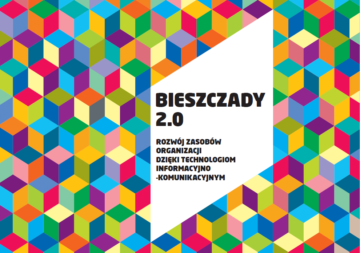In 2012 Good Network Foundation in cooperation with the Ustrzyki Dolne Town Hall and the Bieszczady Foundation carried out the training course „Bieszczady 2.0. Development of NGO’s capital via ICT”. It was aimed at representatives of NGOs from the Podkarpackie voivoidship. The project was subsidized by the Civic Inititatives Fund (pl. FIO).
What is it about?
The Internet is an endless source of information, thanks to which even the smallest NGOs can easily get access to the essential forms of capital: the human, social and financial capital. The participants of the project will gain the necessary knowledge and make their first step in the following areas:
- the organisation of effective, low-budget advertising and (e-)fundraising campaigns,
- the establishment of efficient cooperation and partnership with the territorial and virtual society, especially with volunteers and e-volunteers,
- the application of Internet tools to enable the best possible task management in an organization.
We’re focused on practice!
As theory is only a half of success, the project is focused mainly on providing the participants with firm skills concerning the practical application of modern technology in the everyday life of their NGOs.
The project started with a two-day training session (June 30 – July 1 2012) that was divided into four modules:
- The model of cooperation with volunteers and e-volunteers – the human capital (3 hrs),
- Raising funds for the NGO’s activity via Internet – the financial capital (3 hrs),
- The communication of data on the NGO’s activity with the particular importance of social media – the social capital (3 hrs),
- The application of modern techonology (the Internet, IT) in the everyday activity of an NGO (3 hrs).
Each training module covered both a theoretical and a practical part that was based on active computer exercises.
Then, the participants of the project broadened their knowledge and improved their skills by taking part in a virtual e-learning session and doing practical tasks within their local communities. They were supported by local mentors and experts during the whole project.
In October 2012 there were special workshops, during which the participants with the aim of experts came up with ICT-focused capital-raising strategies for their NGOs.
Another part of the project was to issue a publication that makes up a compendium of knowledge and a practical guide. The latter includes theoretical texts written by experts as well as more practical descriptions and photos that present the actions carried out by the participants in their local communities.
On December 5, 2012 there was a final meeting, during which the results of the project were presented.
Take a look at the photo gallery of the project:
https://www.flickr.com/photos/evolunteering/sets/72157631736475359/


